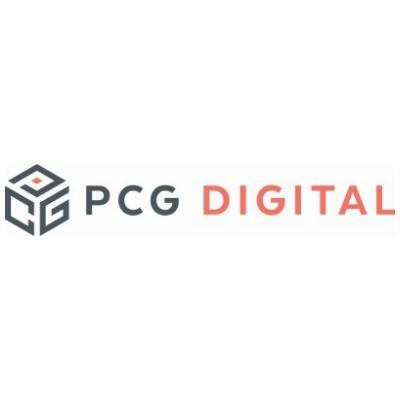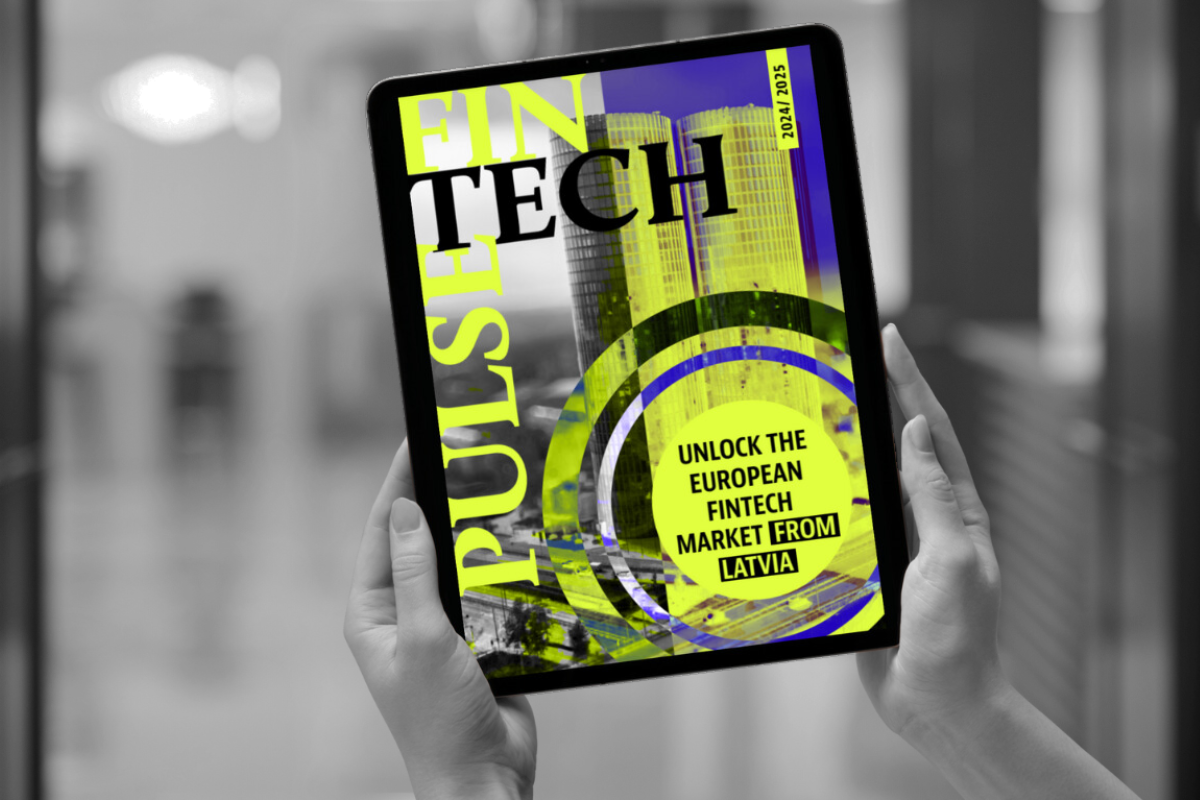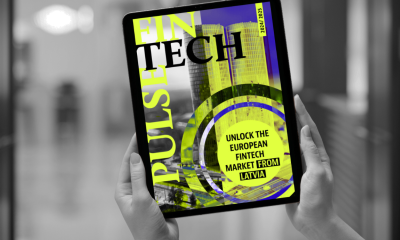Fintech
Lexaria Bioscience: Turning the Tide on Hypertension

New York, New York–(Newsfile Corp. – April 15, 2021) – PCG Digital — Hypertension, or high blood pressure, is known as the “silent killer” because it causes more than 7 million deaths each year-often with next to no symptoms. Hypertension puts people at greater risk for heart disease and stroke, the leading causes of death in the United States, according to the Centers for Disease Control. Nearly half of adults in the United States have high blood pressure or are currently taking medication for hypertension-and very few have it under control.
Fortunately, there is good news on the horizon, as Lexaria Bioscience (Nasdaq: LEXX) aims to turn the tide on hypertension.
While the three leading hypertension drugs available on the market can save lives, they also cause a lot of unwanted side effects-everything from headaches to nausea to dizziness to fatigue. Despite having already notched more than $100 billion in sales, these medications are problematic for many.
Cannot view this video? Visit:
https://www.youtube.com/watch?v=8m-vPilohPI
DehydraTECH to revolutionize hypertension market
That’s where DehydraTECH CBD by Lexaria comes in. This revolutionary oral deliverable for hypertension sufferers is set to be a market game-changer with its potential for minimal side effects and maximum effectiveness.
Using a patented dehydration process that changes how the body senses and absorbs drugs orally, DehydraTECH CBD has been shown to deliver 300% more CBD than generic CBD in less than 30 minutes. It is in human clinical trials right now with already promising results.
“Our 2018 human clinical trial showed that DehydraTECH CBD lowers blood pressure by about 5% after just a single 90 milligram dose,” said Lexaria CEO Chris Bunka. “Generic CBD doesn’t do that. Our objective in our new 2021 clinical studies is to evidence a 10% or greater drop in blood pressure to be competitive with industry demands.”
Lexaria believes it can evidence a 10 to 20% reduction in blood pressure in studies during the next six to nine months-the competitive standard for successful hypertension drugs. “In the hypertension industry, drugs that provide a 10 to 20 percent reduction in blood pressure are generally successful,” Bunka adds. “We are confident we can get to that level and expect our studies to provide evidence supporting that this year.”
While the trials are in process, the company continues to examine smart ways to commercialize DehydraTECH CBD as a regulated form of CBD.
Partnering for better health outcomes
To tap into the almost $30 billion hypertension market, Lexaria will look to partner with Big Pharma in delivering this potentially life-saving treatment. With animal trial results expected in May and human clinical results in September, as well as industry precedents that are already established, the path to commercialization is becoming clear.
Likewise, with existing patents granted in the EU and Australia for the treatment of heart disease using cannabinoids, Lexaria is anticipated to achieve regulatory approvals in multiple geographic markets.
All of this is great news for the many people across the globe who suffer from hypertension and for those seeking a better treatment alternative.
Disclaimer
This communication was produced by PCG Digital Holdings, LLC, an affiliate of PCG Advisory Inc., (together “PCG”). PCG is an integrated investor relations, communications and strategic advisory firm. The information contained on this may be ‘Paid Advertising’ for purposes of Section 17(b) of the Securities Act of 1933, as amended (together with the rules and regulations there under, the “Securities Act”). PCG may be compensated by respective clients for publicizing information relating to its client’s securities. For more information in terms of compensation received for services provided by PCG, see the pertinent advertising materials relating to the respective client. By accessing this Site and any pages thereof, you agree to be bound by the Terms of Use and Privacy Policy.
PCG is not a registered or licensed broker, dealer, broker-dealer, investment adviser nor investment manager, nor does PCG engage in any activities that would require such registrations. PCG does not provide investment advice, endorsement, analysis or recommendations with respect to any securities, and its services to or statements about its clients should never be construed as any endorsement of or opinion about any security of any client. No information contained in this communication constitutes an offer to sell, a solicitation of an offer to buy, or a recommendation of any security or any other similar product or service regardless of whether such security, product, or service is referenced in this communication. Further, nothing in this communication is intended to provide tax, legal, or investment advice and nothing in this communication should be construed as a recommendation to buy, sell or hold any investment or security or to engage in any investment strategy or transaction. For full disclaimers, including compensation received for professional services, please visit www.pcgadvisory.com/disclosures.
Contact: [email protected]
Fintech
Fintech Latvia Association Releases Fintech Pulse 2024: A Guide to Latvia’s Growing Fintech Hub

The Fintech Latvia Association has launched the latest edition of its annual publication, Fintech Pulse 2024, unveiling insights and resources that position Latvia as a thriving hub for European fintech.
Announced at this year’s Fintech Forum, the magazine is now available in digital format, offering a comprehensive guide for fintech professionals and entrepreneurs navigating the Latvian market and exploring its advantages.
This issue covers essential topics, from support tools provided by Latvijas Banka and newcomer roadmaps to Riga’s investor resources and fintech education opportunities. Readers will find the latest fintech news from Latvia, coverage of this year’s key industry events, and member insights on the future of fintech. The Fintech Landscape section provides a comprehensive overview of the Latvian fintech ecosystem.
Tina Lūse, Managing Director of Fintech Latvia Association, expressed excitement about the ecosystem’s growth: “We are excited to unveil the third annual edition of Fintech Pulse. This year has been pivotal for our ecosystem, and together with public sector stakeholders, we are enhancing financial inclusion, democratizing investments, and driving innovation throughout the sector. This is a testament to Latvia’s emergence as a fintech hub, establishing itself as an equal partner in innovation and support within the Baltic region.”
Minister of Finance Arvils Ašeradens highlighted Latvia’s fintech potential in the magazine, stating: “Latvia has already made strides in adapting its regulatory framework to support a stable financial system. Now, we encourage financial market players to invest in modern technologies to meet the growing demand for inclusive financial services and solidify Latvia’s position in the fintech landscape. We are confident that with the combined offer of the government, Latvijas Banka and Riga city, we are a great place to start your next scalable European FinTech!”
Minister of Economics Viktors Valainis expressed Latvia’s ambition in the magazine, stating: “Latvia wants to become a WEB 3.0. innovation hub and solidify itself as one of the leaders of a newly regulated EU crypto-asset market. We welcome international companies to choose Latvia, a flexible and fast-paced country, where you can obtain a MICA license in just 3 months. Open your office in Latvia, receive a MICA license and serve the whole EU market!”
The Fintech Latvia Association brings together fintech and non-banking financial service providers to represent their interests at both the national and international levels. It promotes sustainable development in Latvia’s financial sector by fostering reliable, responsible, and long-term industry practices that earn trust from consumers and regulatory authorities. The association is committed to supporting innovation and growth opportunities within the fintech landscape.
The post Fintech Latvia Association Releases Fintech Pulse 2024: A Guide to Latvia’s Growing Fintech Hub appeared first on News, Events, Advertising Options.
Fintech
Quantum Security and the Financial Sector: Paving the Way for a Resilient Future

The World Economic Forum (WEF) has released a pivotal white paper in collaboration with the Financial Conduct Authority (FCA), titled “Quantum Security for the Financial Sector: Informing Global Regulatory Approaches”. This January 2024 publication underscores the urgent need for global cooperation as the financial sector transitions from a digital economy to a quantum economy, highlighting both the immense opportunities and cybersecurity challenges posed by quantum computing.
Quantum: A Double-Edged Sword for Finance
Quantum computing offers transformative benefits for the financial sector, such as accelerated portfolio optimization, enhanced fraud detection, and improved risk management. Yet, it simultaneously threatens the very foundation of cybersecurity. With quantum’s ability to break traditional encryption methods, sensitive data and financial transactions face significant risks. The white paper warns that such vulnerabilities could erode trust in the financial system and destabilize global markets.
The urgency to prepare is evident, with some quantum threats, such as “Harvest Now, Decrypt Later” attacks, already emerging. Governments and regulators, including the United States with its National Security Memorandum on Quantum (2022), have begun advocating for quantum security readiness by 2035. However, as noted in the paper, transitioning to a quantum-secure infrastructure is a monumental task requiring unprecedented coordination between regulators, industry leaders, and technology providers.
A Collaborative Framework: Four Guiding Principles
To address the complex challenges posed by quantum technologies, the WEF and FCA have proposed four guiding principles to inform global regulatory and industry approaches:
- Reuse and Repurpose: Leverage existing regulatory frameworks and tools to address quantum risks, rather than creating entirely new systems.
- Establish Non-Negotiables: Define baseline requirements for quantum security, ensuring consistency and interoperability across organizations and jurisdictions.
- Increase Transparency: Foster open communication between regulators and industry players to share best practices, strategies, and knowledge.
- Avoid Fragmentation: Prioritize global collaboration to harmonize regulatory efforts and avoid inconsistencies that could burden multinational organizations.
These principles aim to create a unified, forward-looking strategy that balances innovation with security.
A Four-Phase Roadmap for Quantum Security
The white paper introduces a phased roadmap to help the financial sector transition toward quantum security:
- Prepare: Raise awareness of quantum risks, assess cryptographic infrastructure, and build internal capabilities.
- Clarify: Formalize engagement between stakeholders, map current regulations, and model the cost and complexities of transitioning to quantum-safe systems.
- Guide: Address regulatory gaps, translate technical standards into actionable frameworks, and develop industry-wide best practices.
- Transition and Monitor: Implement cryptographic management modernization and adopt iterative, adaptable regulatory approaches to remain resilient in the quantum economy.
This roadmap emphasizes adaptability, encouraging stakeholders to continuously refine their strategies as quantum technologies evolve.
The Path Forward: Collaboration as a Catalyst
The transition to a quantum-secure financial sector is not merely a technological shift but a comprehensive rethinking of how industries and regulators approach cybersecurity. The interconnected nature of global finance means that collaboration between mature and emerging markets is crucial to avoid vulnerabilities that could undermine the entire system.
Regulators and financial institutions must act with urgency. As Sebastian Buckup, Head of Network and Partnerships at the World Economic Forum, notes in the report:
“The quantum economy era is fast approaching, and we need a global public-private approach to address the complexities it will introduce. We welcome this opportunity to collaborate with the FCA to chart the roadmap for a seamless and secure transition for the financial services sector.”
Similarly, Suman Ziaullah, Head of Technology, Resilience, and Cyber at the FCA, emphasizes:
“Quantum computing presents considerable opportunities but also threats. The financial sector relies heavily on encryption to protect sensitive information, the exposure of which could cause significant harm to consumers and markets. Addressing this requires a truly collaborative effort to transition to a quantum-secure future.”
Global Impact: Ensuring Resilience in an Evolving Landscape
As quantum technologies mature, they will redefine the landscape of cybersecurity. The financial sector, as one of the most sensitive and interconnected industries, must prioritize preparedness to ensure stability, protect consumers, and maintain trust.
The Quantum Security for the Financial Sector: Informing Global Regulatory Approaches white paper offers an essential foundation for continued dialogue and action. By adhering to the guiding principles and roadmap outlined in the report, stakeholders can navigate this transformation with foresight and cooperation.
The full report, published by the World Economic Forum, highlights the need for a unified global approach to quantum security, serving as a rallying call for industry and regulatory leaders alike.
Source: World Economic Forum, “Quantum Security for the Financial Sector: Informing Global Regulatory Approaches”, January 2024.
The post Quantum Security and the Financial Sector: Paving the Way for a Resilient Future appeared first on News, Events, Advertising Options.
Fintech
Fintech Pulse: Daily Industry Brief – A Dive into Today’s Emerging Trends and Innovations

The fintech landscape continues to redefine itself, driven by innovation, partnerships, and groundbreaking strategies. Today’s roundup focuses on the latest digital wallet offerings, evolving payment trends, strategic collaborations, and notable funding achievements. This editorial explores the broader implications of these developments, casting light on how they shape the future of fintech and beyond.
Beacon’s Digital Wallet for Immigrants: A Gateway to Financial Inclusion
Beacon Financial, a leading player in financial technology, recently launched a digital wallet tailored to meet the unique needs of immigrants moving to Canada. This offering bridges a critical gap, enabling seamless financial integration for newcomers navigating a foreign system.
By combining intuitive technology with user-centric features, Beacon aims to empower immigrants with tools for payments, savings, and remittances. This aligns with the growing demand for tailored financial products that resonate with specific demographics.
Op-Ed Insight:
Financial inclusion is more than just a buzzword; it’s a moral imperative in the fintech space. Products like Beacon’s digital wallet highlight the industry’s potential to create tangible change. As global migration trends increase, such offerings could inspire similar initiatives worldwide.
Source: Fintech Futures.
Juniper Research Highlights 2025’s Payment Trends
Juniper Research’s latest report unveils pivotal payment trends poised to dominate in 2025. Central themes include the adoption of instant payment networks, a surge in embedded finance solutions, and the rise of crypto-backed financial products.
The research underscores the rapid adoption of real-time payment systems, fueled by increasing consumer demand for speed and efficiency. Meanwhile, embedded finance promises to blur the lines between traditional banking and non-financial services, delivering personalized and context-specific solutions.
Op-Ed Insight:
As the lines between financial services and technology continue to blur, these trends emphasize the industry’s shift toward convenience and personalization. The growing role of crypto-based solutions reflects an evolving consumer mindset, where decentralization and digital-first experiences gain precedence.
Source: Juniper Research.
MeaWallet and Integrated Finance Partner to Revolutionize Digital Wallets
MeaWallet, a prominent fintech solutions provider, has partnered with Integrated Finance to advance digital wallet capabilities and secure card data access for fintech companies. This collaboration focuses on empowering fintechs to deliver better, safer digital payment experiences.
MeaWallet’s role as a technology enabler aligns seamlessly with Integrated Finance’s goal of simplifying complex financial infrastructures. Together, they aim to create scalable, robust platforms for secure payment solutions.
Op-Ed Insight:
Partnerships like this underscore the importance of collaboration in driving innovation. As security concerns grow in tandem with digital payment adoption, solutions addressing these challenges are essential for maintaining consumer trust. The fintech ecosystem thrives when synergy and innovation coalesce.
Source: MeaWallet News.
Nucleus Security Among Deloitte’s Fastest-Growing Companies
Nucleus Security has achieved a remarkable milestone, ranking 85th on Deloitte’s 2024 Technology Fast 500 list. This achievement is attributed to its robust cybersecurity solutions, which cater to the increasingly digital fintech environment.
With cyberattacks becoming more sophisticated, fintech companies are under immense pressure to safeguard their platforms. Nucleus Security’s growth reflects the rising demand for comprehensive, scalable security solutions that protect sensitive financial data.
Op-Ed Insight:
In a digital-first world, robust cybersecurity isn’t optional—it’s fundamental. The recognition of companies like Nucleus Security signals the growing importance of protecting fintech infrastructure as the industry scales globally.
Source: PR Newswire.
OpenYield Secures Funding to Transform the Bond Market
OpenYield has announced a successful funding round, aiming to revolutionize the bond market through innovative technology. The platform promises greater transparency, efficiency, and accessibility in fixed-income investments.
This funding underscores the growing appetite for digitizing traditionally opaque financial markets. By leveraging cutting-edge technology, OpenYield seeks to democratize bond investments, making them accessible to a broader audience.
Op-Ed Insight:
The bond market, long viewed as complex and inaccessible, is ripe for disruption. OpenYield’s efforts to modernize this space highlight fintech’s transformative potential to democratize finance and empower individual investors.
Source: PR Newswire.
Key Takeaways: Shaping the Future of Fintech
Today’s developments underscore several critical themes in the fintech landscape:
- Personalization and Inclusion: Products like Beacon’s wallet highlight the importance of understanding and addressing specific user needs.
- Collaborative Ecosystems: Partnerships, like that of MeaWallet and Integrated Finance, emphasize the power of collaboration in solving industry challenges.
- Emerging Technologies: Juniper Research’s predictions affirm the continued influence of blockchain, embedded finance, and instant payment networks.
- Security at the Core: The recognition of Nucleus Security underscores the essential role of cybersecurity in fintech.
- Market Transformation: OpenYield’s funding signifies the ongoing disruption of traditional financial markets, paving the way for broader accessibility.
The post Fintech Pulse: Daily Industry Brief – A Dive into Today’s Emerging Trends and Innovations appeared first on News, Events, Advertising Options.
-

 Fintech5 days ago
Fintech5 days agoFintech Pulse: Industry Updates, Innovations, and Strategic Moves
-

 Fintech4 days ago
Fintech4 days agoFintech Pulse: Daily Industry Brief – A Dive into Today’s Emerging Trends and Innovations
-

 Fintech PR5 days ago
Fintech PR5 days agoROLLER Releases 2025 Attractions Industry Benchmark Report, Unveiling Key Trends and Revenue Strategies
-

 Fintech PR4 days ago
Fintech PR4 days agoTAILG Represents the Industry at COP29, Advancing South-South Cooperation with Low-Carbon Solutions
-

 Fintech6 days ago
Fintech6 days agoFintech Pulse: Milestones, Partnerships, and Transformations in Fintech
-

 Fintech7 days ago
Fintech7 days agoFintech Pulse: Navigating Expansion, Innovation, and Sustainability
-

 Fintech PR3 days ago
Fintech PR3 days agoAlkira Ranked 25th Fastest-Growing Company in North America and 6th in the Bay Area on the 2024 Deloitte Technology Fast 500™
-

 Fintech PR5 days ago
Fintech PR5 days agoThe CfC St. Moritz Announces New Speakers from BlackRock, Binance, Bpifrance, Temasek, PayPal, and More for Upcoming 2025 Conference














